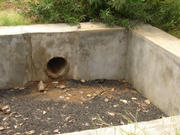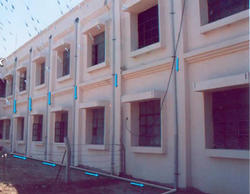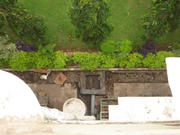BMP
Best Mangement Practice for RWH
Start managing water at the
Top of the watershed
Create multiple small watersheds
Collect, slow and infiltrate the water
Prepare for overflow
Mulch to reduce evaporation
Put harvested water to beneficial use
PLANNING OF ARTIFICIAL RECHARGE PROJECTS
- Identification Area
- Scientific Inputs
- In order to plan the artificial recharge schemes following studies are needed
- Hydrometeorological Studies
- Hydrological Studies
- Soil Infiltration Studies
- Hydrogeological Studies
- Geophysical Studies
- Chemical Quality of Source Water
- Suspended matter may clog the soil in two different ways
- Assessment Of Sub-Surface Potential For Ground Water Recharge
Non-Urban Areas
Direct surface techniques ..... Flooding
Direct sub surface techniques • Injection wells or recharge wells • Recharge pits and shafts • Dug well recharge
Combination surface – sub-surface techniques • Basin or percolation tanks with pit shaft or wells
Indirect Techniques • Induced recharge from surface water
Ditch and Furrow Method
Lateral Ditch Pattern ...Dendritic, contour pattern
Percolation Tanks / Spreading Basin
Check Dams Cement Plug nala bunds
Gabion Structure
Inter Watershed Transfer
Dug Well Recharge
Recharge Shaft
Sub-Surface Dykes Or Underground Bandharas
Urban Areas
Roof Top Rain Water Harvesting
In Urban areas, the roof top rainwater can be conserved and used for recharge of ground water. This approach requires connecting the outlet pipe from rooftop to divert the water to either existing wells/ tubewells/borewell or specially designed wells. The urban housing complexes or institutional buildings have large roof area and can be utilising for harvesting roof top rainwater to recharge aquifer in urban areas
Caution
An understanding of the properties of rock material and of rock mass conditions vis-à-vis their lithology, structure, and quality of the rock (weatherability) are essential to evaluate the site conditions, for excavations, openings and foundation for the design of construction of engineering structures.
- Slow Mass Movements like soil creep
- Fast mass movements slides can be caused in coherent mass of rock material
- Slumps can occur
A wrong site evaluation and hence RWH design may trigger above earth movement.
Components of Roof Top RWH
Component | Size | Remarks |
Bore well | 6 inches diameter | Drilled in water bearing strata |
Bore well pit | 4ft. length & breath wise. The depth should be below the bottom level of Holding tank | The entry of water from Holding tank will be at bottom level of Holding tank. Hence, the depth of this pit should be more than that. |
Perforations in casing | Smaller sized | Wrapped around with nylon wire mesh |
Gravel packing | Gravels to pebbles | Filter bed, bottom of the pit to the top. |
Pre-Requisite Data for designing RWH system
Sr. No. | Subject | Information as | Values | Remarks |
1 | Location, Lay out, Block plan | Maps, drawings | Hard copy | Topography |
2 | Area of the plot | In square meters | ||
3 | Area of Roof/Terrace | In square meters | ||
4 | Rainwater down take pipes | No. of pipes and diameter | Material type | |
5 | Size of Partitions in u.g. tank | Cubic meter | Domestic/ Flushing | |
6 | Paved, road area in the plot | Square meters | ||
7 | Unpaved or garden or RG area | Square meters | Show on map | |
8 | Storm water drains, size, etc | Drawing | Hard copy | Cross section |
9 | Soil analysis report | Geo technical report | Logs | Bore logs |
10 | Presence of Bore well/open well | Depth, yield & quality | Logs | Mark on map |
11 | Presence of water body nearby | Pond, river, creek, sea, nala | Hard copy | Mark on map |
12 | Septic tank, etc | Distance from wells | Hard copy | Mark on map |
13 | Flood data | Max. flood level | M & Year |
Costs
The major components of a rainwater harvesting system - rain and catchments area - are available free of cost. Costs can be lowered if the designing of RWH system is made at the construction stage of the project. RWH methods are site specific and hence it is difficult to give a generalized cost.
But the cost can be lowered at the timely implementation of RWH system with the project.


